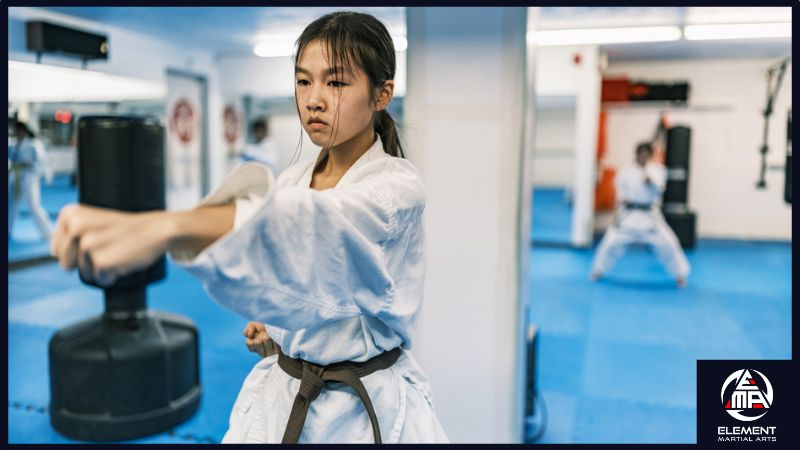5 Effective Tae Kwon Do Techniques for Self-Defense

Self-defense is a crucial skill in today's world, and Tae Kwon Do offers a wealth of effective techniques for protecting oneself. In this article, we will explore five powerful Tae Kwon Do techniques that can be used effectively in self-defense situations. These techniques combine speed, precision, and power to help individuals defend themselves against potential threats.
Tae Kwon Do is not just a martial art for sport; it is also a comprehensive system for self-defense. By mastering these five techniques, practitioners can enhance their ability to stay safe and protect themselves in various situations.
Front Kick (Ap Chagi)
The front kick, known as Ap Chagi in Tae Kwon Do, is a fundamental yet powerful technique for self-defense. To execute this kick effectively, practitioners should raise their knee up towards their chest and extend their leg forward, striking the target with the ball of the foot or the instep. The front kick can be aimed at the lower body, such as the groin or knees, to incapacitate an attacker and create an opportunity to escape. Its speed and accuracy make it a versatile tool for self-defense, especially in close-range encounters.
Side Kick (Yop Chagi)
The side kick, or Yop Chagi, is another essential technique in Tae Kwon Do self-defense. This kick involves pivoting on one foot while lifting the other leg horizontally to strike the target with the heel or the edge of the foot. The side kick is effective for maintaining distance from an attacker and delivering a powerful blow to vulnerable areas such as the ribs or abdomen. Its ability to generate force from the hips makes it a formidable technique for defending against frontal assaults or multiple attackers.
Palm Heel Strike (Sonbadak Tulgi)
In addition to kicks, Tae Kwon Do emphasizes hand strikes for self-defense, with the palm heel strike being a standout technique. The palm heel strike, or Sonbadak Tulgi, involves striking the target with the base of the palm, aiming for sensitive areas like the nose, chin, or throat. This technique is effective at close range and can quickly disable an attacker by causing pain and disorientation. Practitioners should focus on generating power from the hips and maintaining a strong stance to maximize the impact of the palm heel strike.
Tae Kwon Do offers a diverse range of effective techniques for self-defense, including the front kick, side kick, and palm heel strike. By mastering these techniques through consistent practice and proper training, individuals can enhance their ability to defend themselves in real-world situations. These techniques prioritize speed, accuracy, and power, making them invaluable tools for staying safe and confident in today's unpredictable environment. Incorporating these techniques into self-defense training can empower individuals to protect themselves and others when faced with potential threats.
If you're looking to learn Tae Kwon Do and improve your self-defense skills, check out Element Martial Arts. Our experienced instructors and welcoming environment provides the perfect opportunity to learn and grow in your martial arts journey. Take the first step towards a safer and more confident you by joining us for a trial class today!
FAQ
While Taekwondo emphasizes safety and flexibility to prevent injuries, it's important to consult with a healthcare provider before starting any new exercise program, especially if you have pre-existing conditions.
Yes, Tae Kwon Do is very safe for kids. Trained instructors ensure that children learn in a supportive and controlled environment, emphasizing safety and proper technique at all times.
Nope! All you need is a willingness to learn and a positive attitude. You don't need any special equipment to begin—just comfortable workout clothes and a can-do spirit.
If my mind can conceive it, my heart can believe it, then I can achieve it.
Contact our studio at 368-993-5668 today or get in touch with us. We look forward to speaking with you. (please note that the form below may take a few seconds to load. thanks for your patience!)

